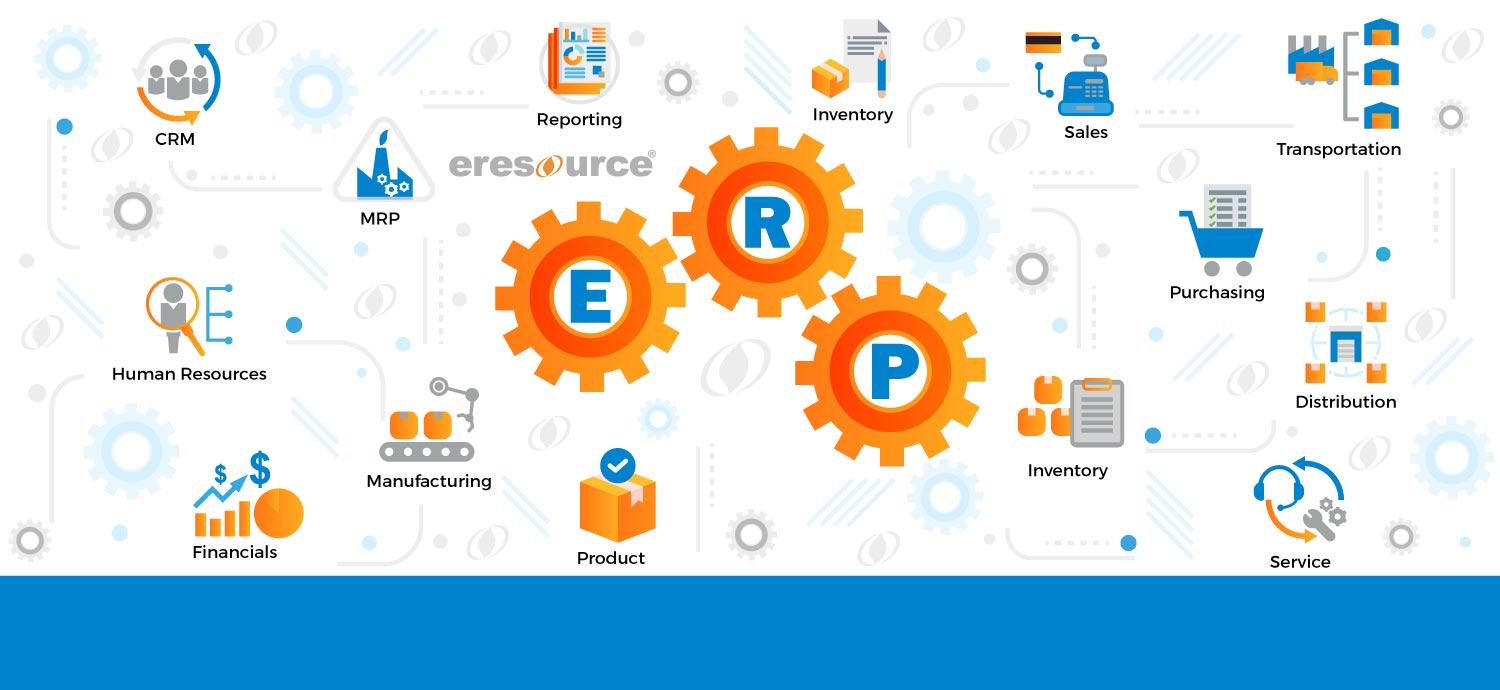ERP software is an effective tool for logistics since it includes several applications that improve information flow inside a business. Enterprise resource planning has emerged as a must-have technology for carriers looking to optimize distribution procedures, streamline inventory control, and better manage workers. eresource 3GL Transport ERP software offers businesses valuable data at every stage of the supply chain and enables fleet operators to manage commercial operations, including product distribution and personnel maintenance.
Challenges faced in the Transportation industry
- lack of inventory, timing, and status visibility.
- Analyses and reporting of extensive data that are inefficient.
- Real-time monitoring and feedback are lacking.
- Inadequate warehousing and inconsistencies in the tax system.
- Poor data management and poorly coordinated customer delivery.
- Unable to consistently adhere to trade laws and regulations.
Purchase cloud-based ERP for transport industry to lower several logistics management dangers. Second, it can significantly reduce costs and streamline business operations.
Benefits
The logistics sector must adopt a standard enterprise-wide system environment to overcome its obstacles. Additionally, selecting a perfect and comprehensive solution can significantly enhance your company’s value.

- Inventory control optimization
With ERP, transportation businesses may examine orders, sales, and deliveries from one location while managing inventories on a customized dashboard. ERP software includes real-time data analytics that gives businesses helpful business intelligence. This enables companies to make better decisions since they can forecast upcoming orders based on historical sales trends. Either a desktop computer or a smart-phone can be used for this. (Mobile ERP has grown in popularity during the past few years.)
ERP speeds up the distribution process as well. Brands use these systems to locate out-of-stock inventory, manage incoming orders from suppliers, and carry out consumer outbound orders. According to research, this program reduces distributors’ order-to-shipment delays by 23%.
- Enhanced distribution
ERP enables freight operators to enhance their product fulfillment to transportation distribution management flow. According to research, a company’s operational and administrative costs can be cut by 23 per cent and 22 per cent, respectively, when precise, real-time data on its business processes is available. These applications compile datasets from various sources, including internal databases, the internet, social media, etc., and present the data as maps, charts, and graphs. Companies can modify ERP packages if they want even more precise information regarding their distribution strategies.
Numerous ERP technologies facilitate communication between distributors, retailers, and suppliers and enable carriers to provide drivers with real-time information, including traffic updates and client addresses. The actual handling and transportation of items from a distribution centre can be improved, and users of ERP can access various data to guarantee that consumers and clients receive their orders on time.
Also Read – ERP Software for Construction
- Staff management
ERP is a helpful tool for employee upkeep. Regardless of turnover, ERP helps businesses that wish to have a regular flow of employees, distribute contracts, and arrange hours. Businesses benefit from an additional degree of protection thanks to cloud-based eresource 3GL ERP application.
- Management of data and compliance
Logistics ERP software can manage most of the data without human error. Consignment notes, manufacturing costs, shipping taxes, and other crucial and accurate data can all be accessed. Additionally, the system can process and file logistics regulatory compliance procedures. Businesses can make informed judgments and maintain their data’s security in the cloud with the help of a centralized database.
- Improved transparency
You can understand the supply chain process due to integrating real-time tracking tools into ERP software. For instance, enabling cloud deployment can assist you in real-time tracking a large volume of data. With a GPS tracking device, you may improve business operations by learning the vehicle’s precise location and tracking its itinerary. The technology also offers inventory visibility to manage variations in supply and demand.
Wrapping up
In conclusion, you can obtain total data visibility and a comprehensive understanding of the entire business operations with optimum planning modern ERP for transportation systems like eresource 3GL. The system can undoubtedly easily manage new turbulent situations, enhance customer experience and run various procedures without a hitch. It is an undisputed tool that enables an easy exchange of supply and demand in the logistics sector. As a result, the system will significantly improve logistical performance.
Also Read – Manufacturing ERP Software
Categories
Register for Free Demo!
Recent Post
-

eresource ERP 360 - an
11th Apr 2019 -

A competitive ERP system for
17th Apr 2019 -

Auto components manufacturing industry has
17th Apr 2019 -

Make the best use of
17th Apr 2019






